Moscow's palatial Yeliseyevsky food hall closes after 120 years
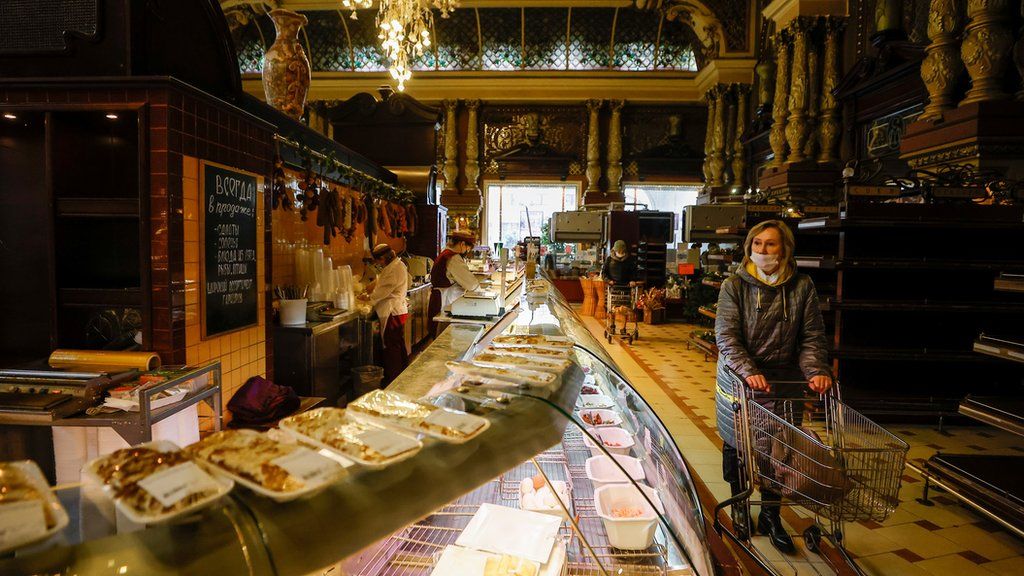
Yeliseyevsky Food Emporium, an iconic food hall set in a palace in Moscow, is closing its doors after 120 years in business.
The supermarket on Tverskaya Street in the centre of the city first opened in 1901, in Imperial Russia.
It continued trading through a revolution and comfortably outlived the Soviet Union.
But ultimately it was the Covid-19 pandemic, along with a complicated legal agreement over the sale of the building, that led to its downfall.
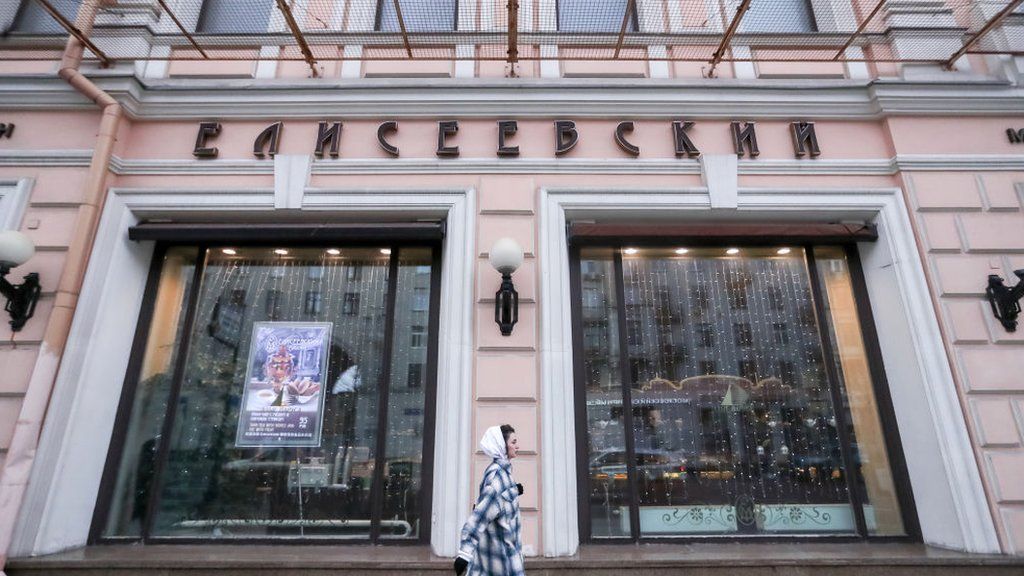
Although it was once bustling and vibrant, the building is now largely empty, both of shoppers and of inventory.
Gleb Prostakov, a spokesman for Yeliseyevsky, told local media that the shop was closing because of legal issues.
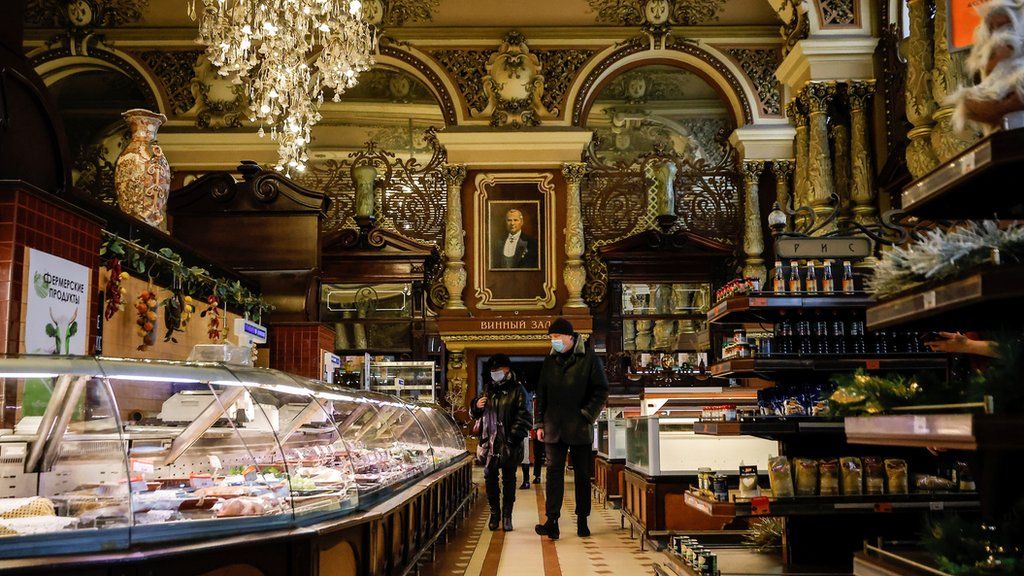
From 2005 to 2015 the building was owned by the city of Moscow, and run by the supermarket chain Aliye Parusa.
Moscow Times reports that in 2015 the city agreed to sell the building to Aliye Parusa, but the contract for that sale is still in limbo.
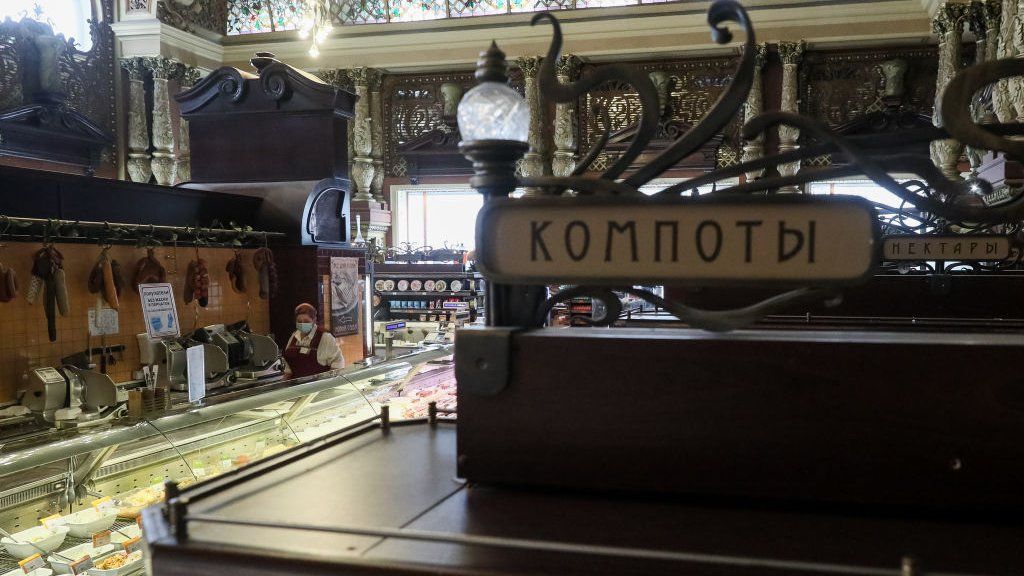 Getty Images
Getty ImagesAliye Parusa then closed all of its stores in 2019, except for the Yeliseyevsky emporium.
While the company itself hasn't given any further details, analysts have speculated that the pandemic and a drop in tourism hit the food hall hard.
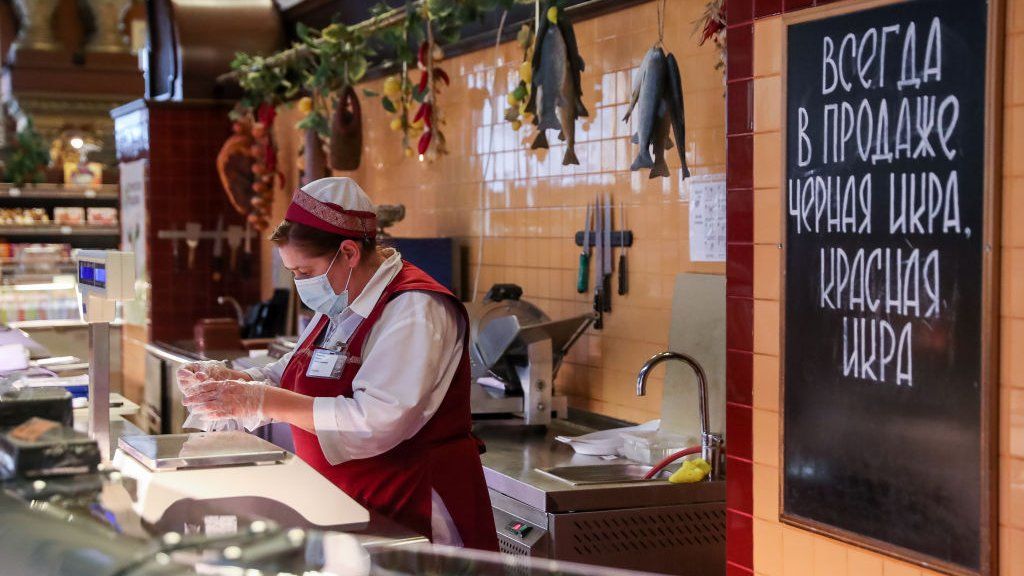 Getty Images
Getty ImagesBefore it was a food hall, the building was a mansion belonging to Princess Zinaida Volkonskaya. In the 19th century, the princess often hosted famous musicians, artists and poets - including Alexander Pushkin.
It was then transformed into a store by the Yeliseyev merchant family, who made their fortune importing wine and fruit into imperial Russia.
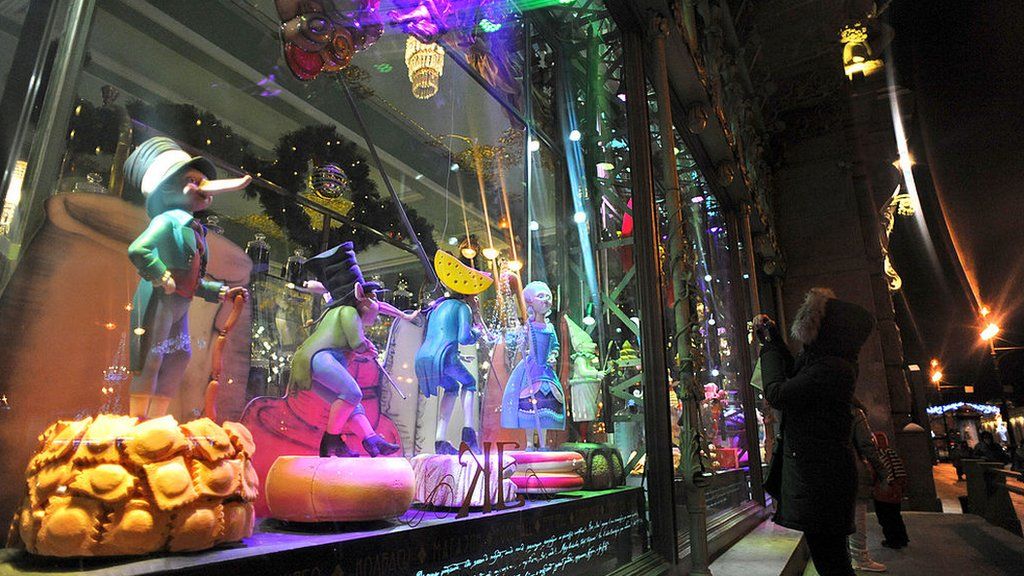 AFP
AFPAfter the Russian revolution in 1917, the emporium was nationalised.
Over the course of the 20th century, in the Soviet era, it then became known as the place to buy rare and otherwise unobtainable delicacies, including caviar.
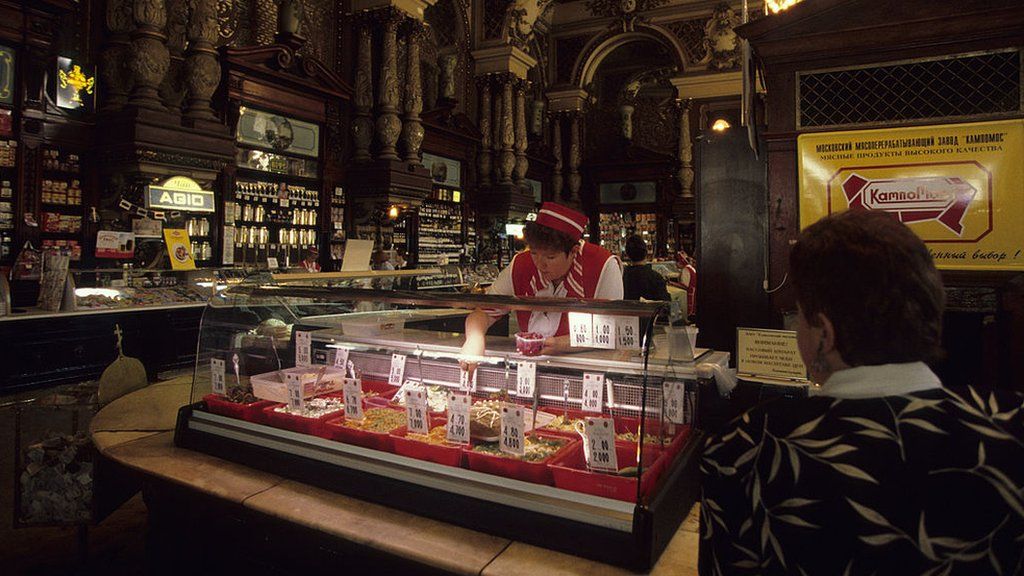 Getty Images
Getty Images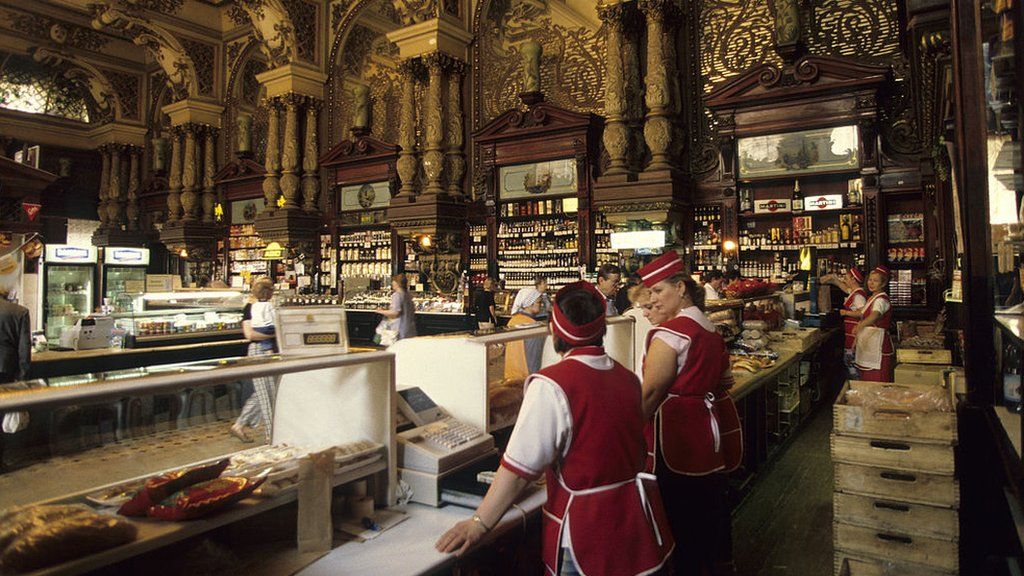 Getty Images
Getty Images